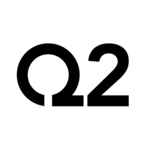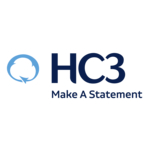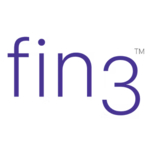Digital transformations: is the recruitment process fit for purpose in the digital age?
In the current employer’s market, we are seeing companies being able to choose from an increasingly large pool of applicants and, in the UK at least, it is not unusual to see some senior level positions attracting well over 1,000 candidates.

Are upwards of six interviews really necessary for anything other than a top-level hire?
Using the same recruitment process when the talent pool is more of a talent ocean is unlikely to yield positive outcomes for either the candidates or the companies involved. But still, a lot of businesses are clinging on to the old ways.
Excessive number of interviews
In some companies, it is not unusual to see candidates applying for mid-level roles being faced with a process where they are expected to engage in upwards of six rounds of interviews.
Beyond interview number three, candidates and interviewers alike are unlikely to be thinking, “What a positive use of my time!”
However, they may be thinking…
“If this is the process that is being used to get candidates in the door, how poor are their other internal processes?”
Or…
“Is this lack of decisiveness indicative of a lack of clear and effective leadership?”
Whether companies like it or not, the recruitment process is a window into the organisation, and providing candidates with a positive experience (even in the face of rejection) is reputationally important.
But it’s an employer’s market, so candidates just have to deal with some very real and extremely poor hiring practices.
Outdated recruitment processes
Some organisations require candidates to create an account on the company’s portal before they are even allowed to view the details of the job description. This practice can be dressed up in many ways (e.g. personalisation, long-term engagement), but it’s probably for data collection purposes.
Then, after viewing the job specification, the candidate may choose to upload their CV and enter/subject themselves to The Recruitment Process. The company may now ask the candidate to…
Fill out an application form
Hang on, remind me what century we are in?
Most/all the information the company needs is in the CV (which the candidate has just uploaded onto the company website). Why can’t the company extract the information they need from that?
Even if there are some specifics that the company requires that are not on the candidate’s CV, organisations should at least meet the candidate halfway and allow them to fill out only the additional information required.
Now add a cover letter
So, the candidate has created an account on the company’s website, uploaded their CV (which has disappeared into the ether) and has manually filled out the 15-page application form (bizarrely, this is not uncommon), including exam results and dates from senior school… Why is this even relevant for degree-level applicants?
Now, as if the process wasn’t onerous enough, the candidate is required to write a cover letter explaining why they are an excellent fit for the role. Oh, come on, is this really required for initial screening?
References
Another practice that has come to my attention while researching this article is that some organisations will insist on contacting the candidate’s referees BEFORE they are considered for interview.
What? Is this even legal?
One of the referees is almost certainly going to be the candidate’s current employer. I would suggest that any organisation contacting the candidate’s employer for a reference would be prejudicing their current position and may well be in litigious territory.
Multiple screening stages
Good news! The candidate has been selected for interview. But it’s not actually an interview (yet). It’s a preliminary quiz, then a personality test.
Only now does the candidate progress to a telephone screening.
An interview at last
Great news! After successfully completing the organisation’s screening process, the candidate can now progress to its seven-round interview process!
Is this really what’s happening?
OK, so the above process is an amalgam of a lot of different hiring practices, across a lot of different organisations, in a lot of different sectors, and you would be very unlucky to hit all of them in one organisation.
However, these practices are real and current, which is worrying.
Does having technology in the process help?
The availability of large talent pools allows recruiters to expand their reach, and some are employing automated techniques and AI for CV/resume screening and candidate matching to improve the efficiency of the process (N.B. I’m being careful not to say it improves the effectiveness of the screening/matching process).
The reason for not saying effectiveness above is that the use of AI comes with its own issues.
Bias
AI can perpetuate and even amplify bias based on historical data and could, in certain instances, have an adverse impact on diversity by homogenising candidates that resemble previous successful employees.
Recruiters could inadvertently be introducing interpretation bias by relying too heavily on any AI’s evaluation without considering the broader context or additional factors about a candidate’s suitability for a role.
Lack of a human touch
When it comes to the hiring process, one size certainly does not fit all, and the homogenisation touched on above can only be effectively countered by putting the human back in the loop. Personal interaction is crucial to understanding the candidate’s unique attributes and cultural fit.
The use of social media in the hiring process
I believe the use of social media in the hiring process is having a positive impact.
Platforms such as LinkedIn allow companies to find, and connect with, potential candidates directly rather than advertising or going via third parties. Similarly, these platforms allow candidates to contact their network to explore whether a prospective employer’s culture aligns with their values.
This is a win for both sides of the hiring equation, resulting in candidates being more informed about potential employers and employers being more effective in targeting potential candidates, both of which should result in a better match between employee and employer.
Closing thoughts
In summary, there are a lot of outdated and very laborious hiring practices out there, and with the market saturated with candidates, these processes do not scale well, resulting in a poor candidate experience.
Should companies care if the candidate experience is poor?
I’ll answer that question with a question…
What will any candidate(s) say about a company that subjects them to a seventh interview?
Have you experienced either an excellent or terrible recruitment process? If so, I’d love to hear about it, so please comment below.
This article contains extracts taken from my upcoming book, Evolving from Digital Transformation to Digital Acceleration using The Galapagos Framework, due for release on 15 April 2024.
 About the author
About the author
Brian Harkin is the founder of DigitalXform and a visiting lecturer at Bayes Business School (City, University of London).
He is passionate about the intersection of people, technology, and innovation and has developed the Galapagos Framework to help leaders and organisations transform the way they direct digital change.
All opinions are his own and he welcomes debate and comment!
Follow Brian on Twitter @DigitalXformBH and LinkedIn.












































The Civil Service asked me for evidence of my ‘O’ grades before allowing me to interview for a subject matter expert role as a degree qualified, Chartered engineer with 20+ years of experience.
As a graduate, a large defence company wrote to tell me that I had security clearance for all of their sites. Does this mean I have a job, I asked? Oh no, we didn’t bother to check with HR, we just ploughed through everyone’s forms regardless.
The worst was an assessment centre when the employer made us all wait for an hour before they decided that they didn’t have any other exercise for us after all. Great for the candidates that had travelled hundreds of miles.
My current role, which will be my last, took 7 months from application to starting. I wasn’t booked in with security to enter the office on my 1st day (2 years ago). This had been a video interview and I’d had to switch laptops at the last minute so couldn’t see the collection of post it notes on the wall behind the original laptop 😏.